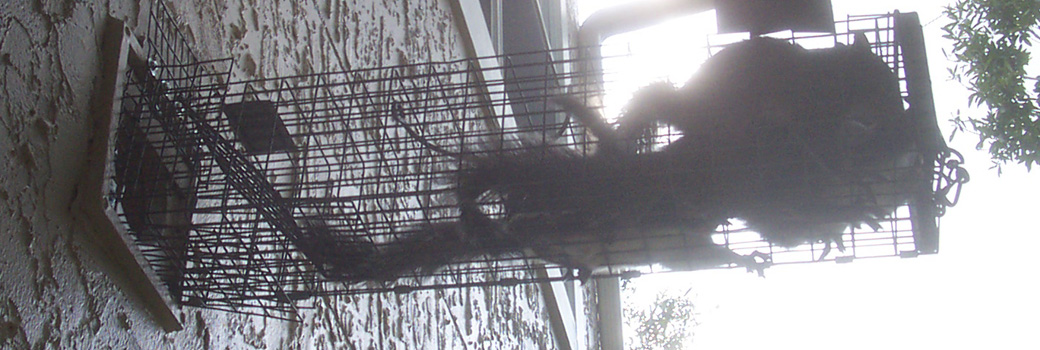- Nashville Educational Article of the Month - Tennessee Wild Animal Diseases
Tennessee Wild Animal Diseases
Before you go charging in like a bull in a china shop to remove that squirrel that’s gotten itself stuck in your attic, or to get rid of those bats that have made your attic their home, you should probably think again. Leaving aside some of these creatures have seriously sharp teeth that are waiting to chow down into your hand, but there are a seriously alarming amount of wild animal diseases you will need to protect yourself for, and we’re not just talking about the animal itself either…
Wild Animal Diseases in Droppings
Bat guano is responsible for the transmission of a nasty respiratory disease called histoplasmosis. In a healthy, adult human, the fungal spores of this disease probably won’t cause too much of a problem, but for the kids in your house, or the sick and elderly, you may find you have a problem. It can seriously affect them, causing infections that will make them very sick.
Birds can also carry the histoplasmosis fungal spores in their droppings, so again, you must be very careful when performing any clear-up operations.
Mouse and rat droppings are just as bad, and in a recent news story in Canada, we heard of a young woman dying after coming into contact with the Hantavirus from the droppings left behind in her garage by a deer-mouse. This 28 year old young woman seems to be just one of a growing number of cases of the hantavirus being spread from rodent to human, and is fatal, as this story shows.

Salmonella is often present in the droppings of these unwanted wild visitors to your home, and in the US alone, causes over nineteen thousand hospital cases per year, with almost 400 of those resulting in death. A condition that makes you very sick with vomiting and diarrhea almost constantly for up to seven days, it’s one that could prove very dangerous again, to your kids and the elderly or sick in your household.
When cleaning up after an unwanted visitor in your home, it is advisable to wear biohazard suits and breathing apparatus and although this may seem a little extreme, it is to avoid the spread of wild animal diseases just like this one. These simply aren't concerns you take into account when you are faced with a squirrel in your chimney, or a bat in your attic, but are very real problems that you will need to protect yourself from.
Wild Animal Diseases
Any mammal has the potential to carry the rabies virus, so that’s bats, skunks, raccoons, opossums, squirrels, beavers, and more that you should be avoiding. In fact, more cases of rabies transmission in the US are caused by bats every year. It is rare to become infected from an opossum because the core body temperature of the animal is normally much lower than the virus itself would want to live in, but caution must still be exercises at all times when around these animals, either dead or alive.
In most cases, a dead animal is just as bad, if not worse, for transmitting diseases such as rabies than when the animal is alive. Admittedly the animal can simply bite you to transmit the virus, but with a dead or decomposing body, the ‘juices’ can transmit the infection. You should never handle these animals, dead or living, without heavy-duty gloves. Gloves that not even super-short tiny teeth can penetrate through.
A wild cat might be a welcome visitor to your home from time to time, but as well as the rabies problem, you may also find that the cat could be infected with something referred to as cat scratch fever, or cat scratch disease. It is said that up to forty percent of all cats will carry this in their saliva at any one time, but most do not show symptoms. If you are bitten or scratched by a cat infected with this bacterial infection, your immune system will normally kick in and sort out the problem, but if your immune system is already weak, or you are a child, this could be quite dangerous. Not just transmitted via a scratch, if you pet a cat with this condition, and then rub your eyes, you could also be passing on the bacteria.
Wild Animals Parasites
These critters could be carrying bugs such as fleas, ticks and worms, which can be transmitted to your household pets, as well as the human members of your home. These are all vectors of disease by themselves. Fleas were responsible for passing on the bubonic plague between rats and mice, and they can also transfer tapeworm viruses, and even myxomatosis virus, which is very bad for rabbits!
To learn more about our services, visit the Nashville wildlife removal home page.

